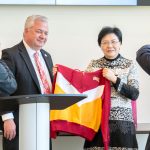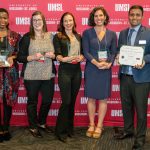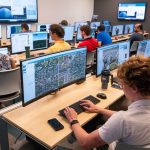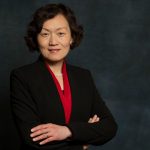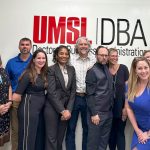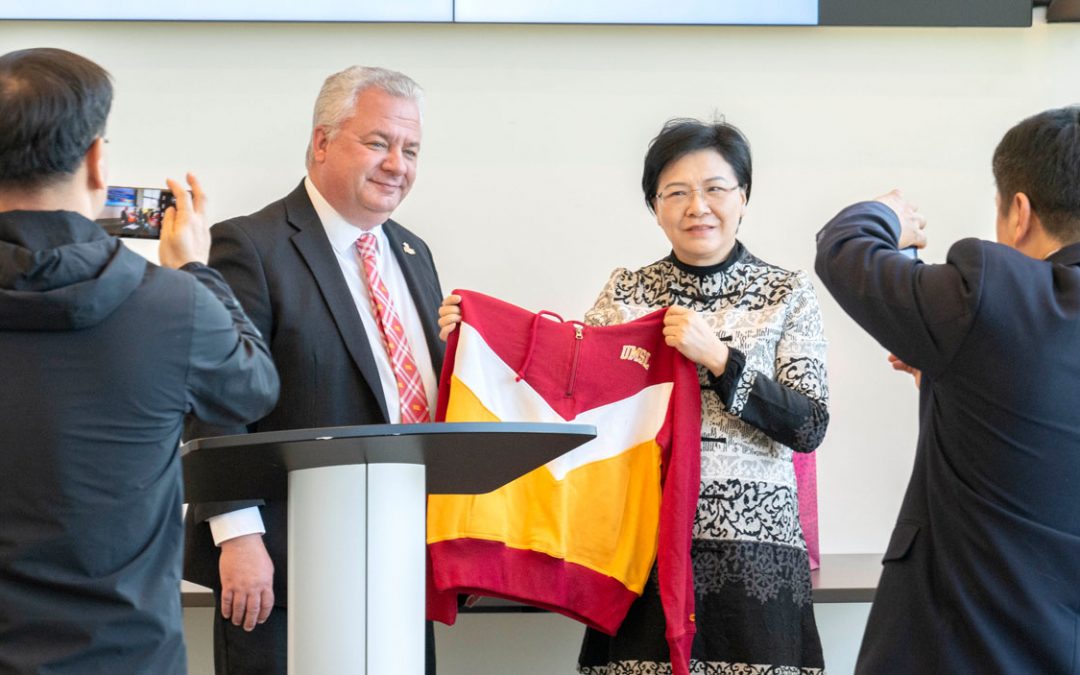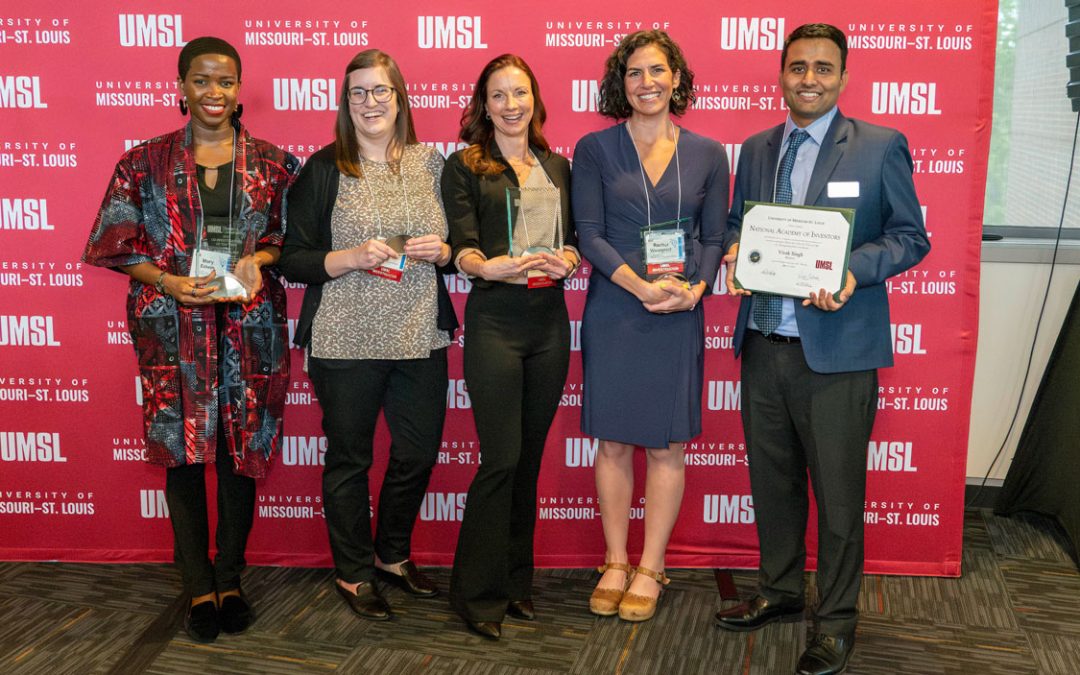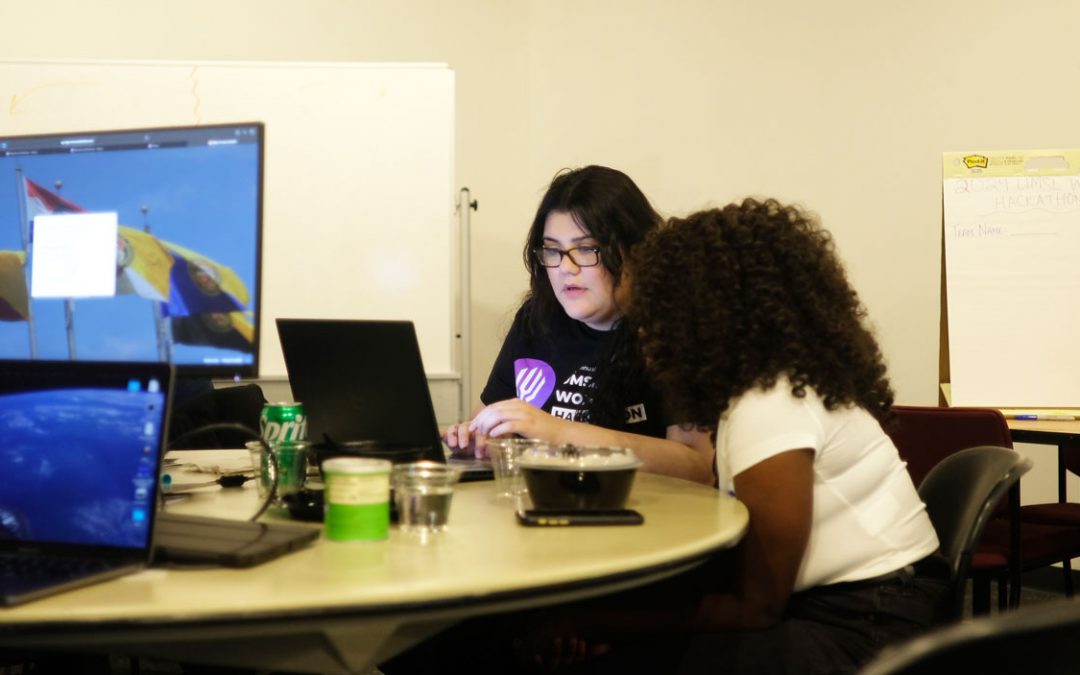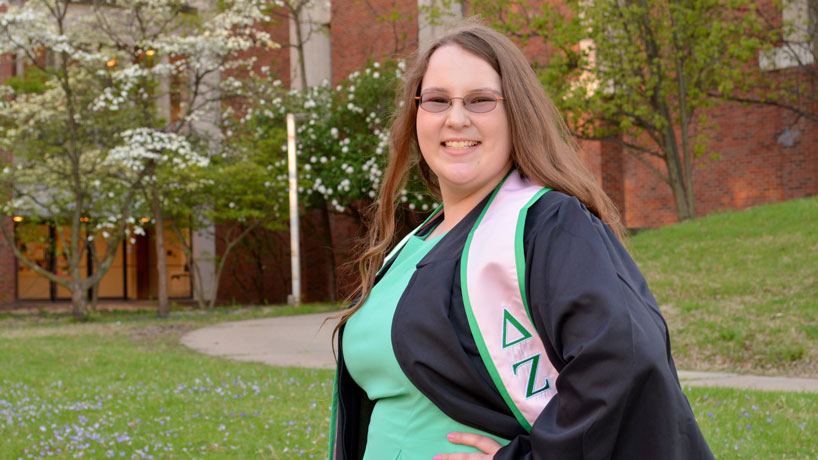
Spring grad and Delta Zeta member Cameron Nunn will research black holes through a Distinguished Doctoral Fellowship at the University of Arkansas. Here, she poses in front of Benton Hall, where she spent many hours completing her undergraduate degree in physics from UMSL. (Photo by Lindsey Smith)
When Cameron Nunn visited the University of Missouri–St. Louis as a high school freshman, she noticed something she appreciated: There were female professors in the Department of Physics and Astronomy.
“Knowing that there were women in the department and my fond memories of campus during the Missouri Junior Science, Engineering and Humanities Symposium helped me choose UMSL later,” Nunn said.
Now she’s working her way to being a female professional in the field as well. After graduating from UMSL this spring with a bachelor’s degree in physics with an emphasis in astrophysics, Nunn is headed to the Space and Planetary Science doctoral program at the University of Arkansas in Fayetteville. She said she owes a lot of her determination and discipline to her time at UMSL.
“The Department of Physics and Astronomy showed me that it is not only possible for a woman to get a degree in physics, but that women can be equally successful in the field,” she said. “A physics degree isn’t all roses all the time. It’s not the easiest field of study, but a supportive department goes a long way helping students get through.”
Nunn also received financial support along the way with a large part of her scholarship money coming from the Pierre Laclede Honors College, the Department of Physics and Astronomy and the Missouri Department of Higher Education’s Bright Flight Scholarship.
While at UMSL, Nunn took advantage of the undergraduate research opportunities available to students. She worked with comet specialist and physics Professor Erika Gibb on analyzing data and identifying different organic molecules found in comets.
“I was also able to help with two or three actual observation runs,” Nunn said. “That means that I was able to take control of the telescope remotely (the telescope we were using is in Hawaii) and have a hands-on data-collecting experience.”
Nunn found that hands-on experience in her classes as well. For her Observation Astronomy capstone course, she and her classmates received training on the UMSL Schwartz Observatory’s telescope and were able to conduct research at the facility.
“We were allowed to do any kind of astronomical research we felt appropriate,” Nunn said. “Originally I was going to track the period of the Galilean moons [the four moons closest to Jupiter and visible from Earth], but you really need a lot of clear nights in a row to do that well. Since spring weather in St. Louis doesn’t always cooperate, I ended up taking photos of the moons on four different nights.”
By tracking their movement, Nunn determined it is possible to identify each of the moons by their movement alone.
Along with her extracurricular commitments – Student Government Association Senate Speaker, ResLife Engineering Living/Learning Community Mentor, honors college SMART mentor, and member of Colleges Against Cancer, Delta Zeta, Golden Key and Physics Club – Nunn said that UMSL provided her the social network and academic foothold she needed to get into graduate school.
Nunn’s headed to a Distinguished Doctoral Fellowship at the University of Arkansas. It’s the highest award the university can give out, covering all the costs of attending school while also providing Nunn a generous stipend.
“I will be a research assistant in a lab that uses Hubble data to study black holes,” she said.
In the future, she hopes to study the satellites of gas giants like Jupiter and Saturn and their potential for life, but she’s keeping her options open.
“Who knows, I could fall in love with black hole research.”



